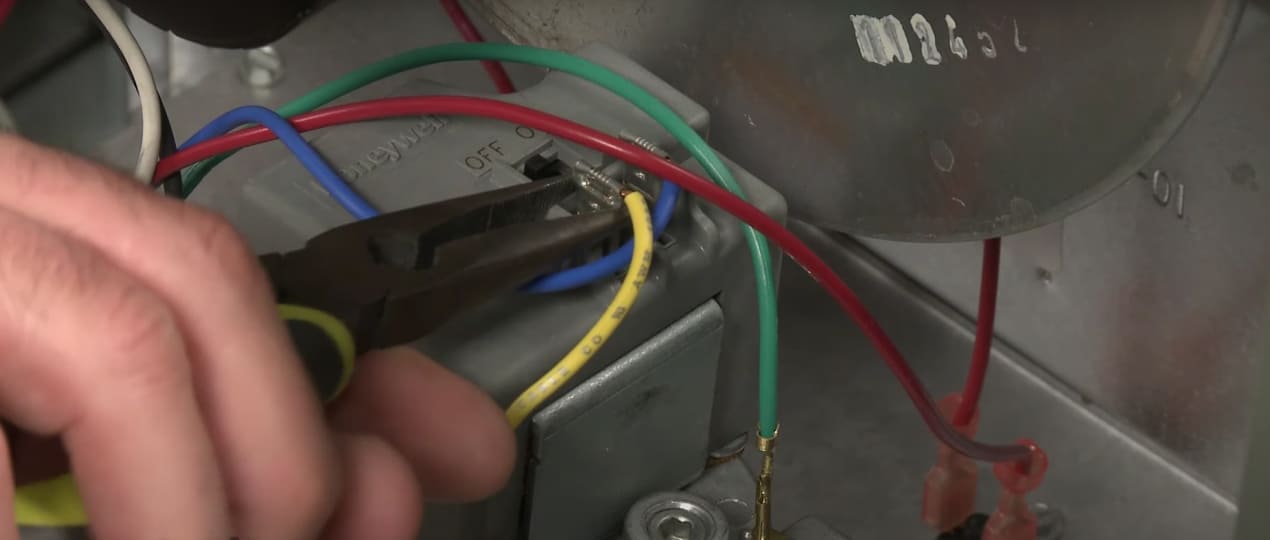
The risk of a gas leak is one that demands immediate attention and careful consideration, as it can jeopardize the safety of your home and loved ones. In this discussion, we will cover detailed signs, the necessary steps to take in an emergency, and crucial preventative measures that warrant long-term security. Every detail presented is based on rigorous industry practices and years of courteous experience. Remember, safety and prompt fixing are vital.
What are the common signs of a furnace leaking gas?
The detection of a gas leak can be a daunting task if you are unaware of the various indicators that hint at an underlying issue. Awareness is the first step toward prevention, and understanding these signs can help you decide when it is time to call for certified assistance.
Some observable indicators include:
- Unexplained odours A strong, unpleasant smell, often resembling rotten eggs, could indicate a leak, which poses a serious safety hazard. Natural gas is odorless, but utility companies add a sulfur-like scent to help detect leaks.
- Persistent hissing sounds Unusual hissing or whistling noises coming may signal a leak, air pressure imbalance, or a malfunctioning valve. Ignoring these sounds can lead to safety risks and inefficient operation.
- Sudden spike in utility bills A sharp increase in energy costs without any change in usage habits could indicate an operating inefficiently. Potential causes include clogged filters, malfunctioning burners.
- Discoloration around the furnace The presence of soot, scorch marks, or discoloration suggests incomplete combustion, which can release harmful carbon monoxide.
- Frequent tripping of safety switches If the safety mechanisms, such as limit switches or circuit breakers, activate repeatedly without a clear reason, it may indicate overheating, electrical faults, or a malfunctioning component.
The early detection of these signs can play a pivotal role in mitigating risk and guaranteeing that you receive the necessary attention before a minor issue escalates into a significant danger.
What to do immediately if you suspect a gas leak
When you suspect a gas leak, swift and measured action is essential to confirm your safety and minimize potential damage. Always prioritize safety by evacuating the premises and contacting experts immediately. It mitigates risk and streamlines the repair process, potentially reducing the furnace gas leak repair cost
A step-by-step explanation to make sure you act effectively in the event of a suspected leak is the following:
- Evacuate immediately If you suspect a gas leak or a hazardous situation, leave the area right away without using any electrical devices, lights, or mobile phones. Even the smallest spark can ignite fumes, posing a serious explosion risk.
- Shut off the gas supply If it is safe to do so, locate the main valve and turn it off to prevent further leakage. The shutoff valve is usually found near the meter.
- Avoid ignition sources Do not light matches, use lighters, or operate any electronic devices, including switches, thermostats, or appliances. Even static electricity from clothing can trigger ignition in a gas-rich environment.
- Call emergency services Once you are at a safe distance from the affected area, contact emergency services or your local company to report the situation. They have specialized equipment to detect and handle issues safely.
- Contact a trained personnel After emergency responders have assessed the situation, schedule an inspection with a certified HVAC technician or gas specialist. They will thoroughly check for leaks, repair faulty connections, and confirm that the system is safe for use.
A clear and prompt reaction, supported by high-level expertise, assures that your home remains a safe haven in times of danger.
Steps to ensure safety: furnace gas leak symptoms
Making certain safety in the wake of a suspected gas leak involves a series of deliberate and well-considered steps. Once you have evacuated the area and notified emergency services, it is imperative to avoid any further actions that might exacerbate the situation. Recognizing the symptoms, such as unusual odours, hissing sounds, and abrupt increases in utility bills, is the first line of defence. Following a structured protocol not only preserves your safety but also facilitates the prompt arrival of qualified practitioners to assess and resolve the problem.
What not to do during a gas leak
In the midst of an emergency, understanding what actions to avoid is as critical as knowing the correct steps to take. Certain behaviors or interventions can worsen the situation, potentially leading to an explosive or hazardous outcome. The phrase gas leak furnace dangerous captures the inherent risks associated with mishandling these emergencies.
It is important to refrain from actions that might inadvertently ignite a spark or cause the gas to accumulate further. Avoiding the use of electrical appliances, open flames, or even mobile phones near the leak is crucial. Instead, focus on safely evacuating the area and waiting for advanced help to arrive.
How do i know if my furnace is leaking gas and when should i call a pro?

Deciding when to call for exceptional overhaul services is a crucial component in managing device safety. Recognizing the right moment can prevent further damage and reduce overall costs. Whether you notice unusual sounds, odours, or unexpected changes in your energy bills, these signals should prompt you to seek refined advice.
When it is advisable to seek fixing services:
- Persistent unusual odours If abnormal smells, such as a sulfuric or burning scent, continue to linger over time, this could indicate a leak, combustion issues, or accumulated debris inside.
- Consistent auditory warnings If hissing or whistling noises are regularly heard, even when the appliance is not actively running, this could suggest a gas leak, pressure imbalance, or failing components within the system.
- Abnormal utility increases A sudden and ongoing rise in consumption or energy bills often points to an inefficient device, a hidden leak, or malfunctioning components.
- Visible damage Discoloration, rust, or corrosion around the area may indicate improper combustion, excess moisture, or gradual wear on critical parts. These signs suggest that the system may be deteriorating.
- Ineffective DIY attempts If basic troubleshooting, such as replacing filters, checking vents, or adjusting settings, does not resolve the issue, this may indicate a deeper mechanical or structural problem. In such cases, top-tier diagnostics and adjustments are necessary.
Waiting too long can compound the risks and costs, so early intervention is always recommended.
Trust us to provide cost-effective and long-lasting solutions for any HVAC issue.
Order the best specialist in Canada Now (866) 545-6460
How to check for gas leak on furnace and prevent it
Preventative measures are the cornerstone of long-term safety. By taking proactive steps and incorporating regular maintenance routines, you can verify that your model operates safely and efficiently. Prevention safeguards your home and minimizes the inconvenience and expense of emergency amendments.
Importance of regular furnace inspections: how to know if furnace is leaking gas
Regular furnace inspections are a vital part of preventing unexpected gas leaks. Scheduled check-ups allow technicians to identify any potential issues before they escalate. Recognizing through consistent evaluations warrants that even minor irregularities are detected and corrected promptly. Engineers from Superior HVAC Service can provide comprehensive inspections, guaranteeing that all components are functioning correctly and that any early warning signs are addressed immediately. Regular inspections create a cycle of prevention that is essential for household safety.
Checking and replacing worn-out parts: signs of gas leak from furnace
Over time, wear and tear can cause critical components of your furnace to deteriorate. Identifying signs through careful observation of worn-out parts is crucial. Components such as seals, valves, and connectors should be checked routinely for cracks, corrosion, or other forms of damage. Prompt replacement of these parts helps in preventing potential hazards. Superior HVAC Service recommends scheduling regular maintenance sessions to confirm that all worn-out components are identified and replaced on time.
Installing carbon monoxide detectors
Installing carbon monoxide detectors is a simple yet effective way to enhance safety in your home. These detectors can alert you to dangerous concentrations that might result from an issue. Understanding how to tell if furnace is leaking gas can be greatly aided by these devices, as they provide early warnings of hazardous conditions. A properly placed detector assures that even minor leaks are identified. Incorporating this device into your home’s safety protocol is an essential part of preventive maintenance. Superior HVAC Service always advises that every household consider the installation of carbon monoxide detectors as a non-negotiable safety measure.
Key takeaways and future actions for preventing gas leaks

Detecting a gas leak in your furnace involves keen observation and prompt action. By familiarizing yourself with common indicators, such as unusual odours, hissing sounds, and sudden increases in utility bills, you can identify early warning signs of potential danger. Remember, a systematic approach that includes immediate evacuation, contacting emergency services, and seeking competent overhauls is essential to mitigate risks. Trust in credentialed expertise, and never hesitate to contact Superior HVAC Service at the first sign of trouble.
REFERENCES
1. Zhou, Y. W., Chang, K. C., Pan, J. S., Chu, K. C., Horng, D. J., Lin, Y. C., & Jing, H. (2020). Study on IoT and big data analysis of furnace process exhaust gas leakage. In Advances in Intelligent Information Hiding and Multimedia Signal Processing: Proceedings of the 15th International Conference on IIH-MSP in conjunction with the 12th International Conference on FITAT, July 18-20, Jilin, China, Volume 1 (pp. 41-49). Springer Singapore. https://link.springer.com/chapter/10.1007/978-981-13-9714-1_5
2. Lu, Y., Lu, Y., Wang, J., Zhang, X., & Chen, W. (2022). Analysis on causative factors and evolution paths of blast furnace gas leak accident. Energies, 15(15), 5622.



